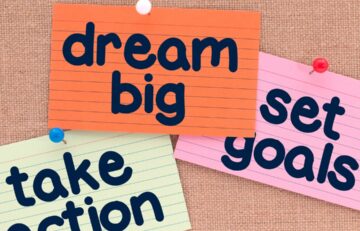WHAT DOES IT MEAN TO BE FAIR AT WORK?
- Publication date April 3rd, 2024
- Category Emotional Intelligence

When organizations look at how they define and implement policies, fairness is something which requires focus.
Proactive fairness can start with the recruitment process where being more unbiased through candidate selection process rather than selecting a candidate based on their names or background.
There are other scenarios and challenges which emerge in the workplace which require greater depth and insight and this is the fairness at a more deep-seated level.
Just this week, I came across this HBR article which looks at this theme. Fairness at work or shall I say, the lack of fairness at work causes so many negative scenarios and situations.
HBR found that people working from home, office worker, parents, non-parents all have different views on how fair they felt the workplace was and how they are treated differently.
“Of the 3,500 employees we surveyed worldwide in 2021, only 18% indicated they work in a high-fairness environment.” HBR
The way fairness at work manifests can relate to the way people are treated, the opportunities they are given, all the way to who gets the most management attention.
When employees do not feel safe or feel the lack of fairness, this contributes to attrition, low work morale and a general sense of unfairness. HBR states “perceptions of a more fair employee experience improves employee performance by up to 26% and employee retention by up to 27%.”
It is therefore becoming important for organizations to look at themselves in new ways, to drive the people agenda at all levels with clear purpose and mission.
From our perspective, we have seen clients feel a sense of resentment, a need to be recognized or the feeling that someone else got the promotion. Of course, this is a two-way process but the move towards fairness comes from employers setting the right tone forward.
What are some of the things which can be done:
Communication
The greatest frustration our clients feel is that they are not told what is “going on” and instead the rumour mills influence how people feel and act.
Share plans, ideas and visions with the organization. If there is a new project on the horizon, ask for people to volunteer if they are interested, better still, showcase the unsung employees by giving them new projects and initiatives to be part of.
Regular events, online communications all the way through to focus groups can be used to share news, ideas and much more.
Treat team members the same
Favoritism causes tensions, conflict and resentment, whether this is in a family or in the workplace. The ability for managers to be objective and view their team members with fairness is an act which needs to be conscious and full of self-awareness. As an example, if a manager only goes to coffee with specific people, who just happen to be the ones who are allowed to work from home or are given rating year-end ratings, then something is wrong.
By deciding on an approach which a manager can take forward that showcases the support of their team members is something which requires thought and may require some trial and errors. The effort can reap its rewards when that fine balance has been arrived at.
Some ideas include, sharing news about the company, explaining what new projects are happening, delegating work, have group coffee sessions, doing something non-work related and perhaps the most important is noticing the employees who seem to have gone quiet or are starting to lack the motivation. Such as approach allows the manager to notice more than what is being said, they are observe and take proactive action.
Embed the culture
When an organization decides to make a conscious decision to implement change, this message must be cascading to all levels of management and team leaders. Whether a team leader or manager is managing 1 person or 75, they require the support to deliver the change and wear the fairness hat.
Middle management can create real change when they are informed and equipped with what needs to be done. By educating, training and preparing managers, they will have the means to deliver the new culture and actually live this in the way they behave, operate and communicate.
This is something which requires senior level support with ambassadors driving the change forward. When people are inspired to change, they will endorse it, which ultimately becomes a collective effort.
Fairness means many things to many people; it is when an organization looks within itself openly and honestly that they can start to look at what needs to change and how.
If not being fair results in good staff leaving, getting poor Glassdoor reviews or things going wrong, how much are you willing to sacrifice?


